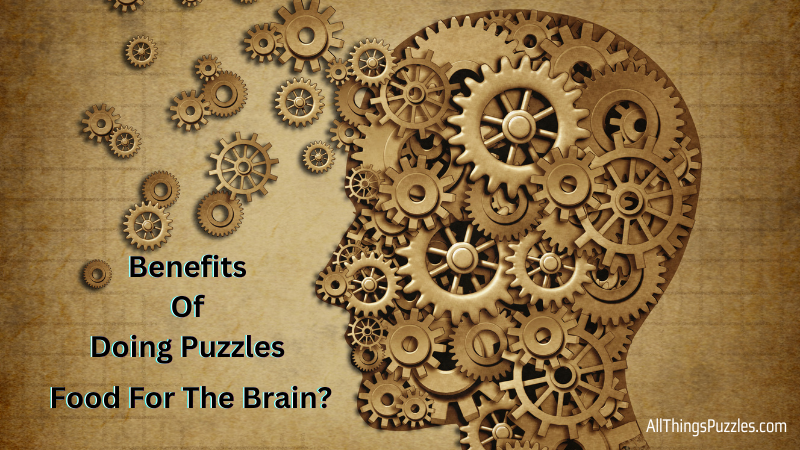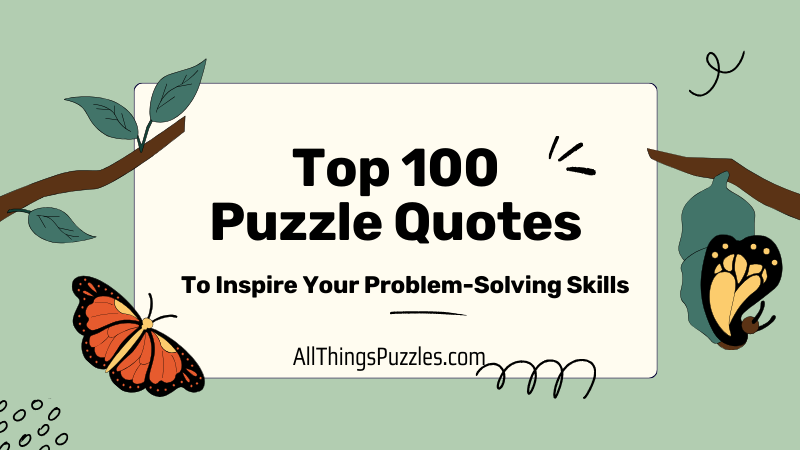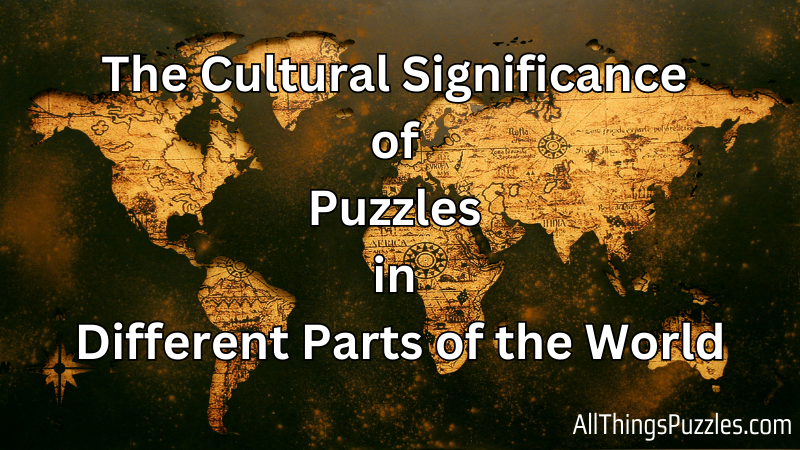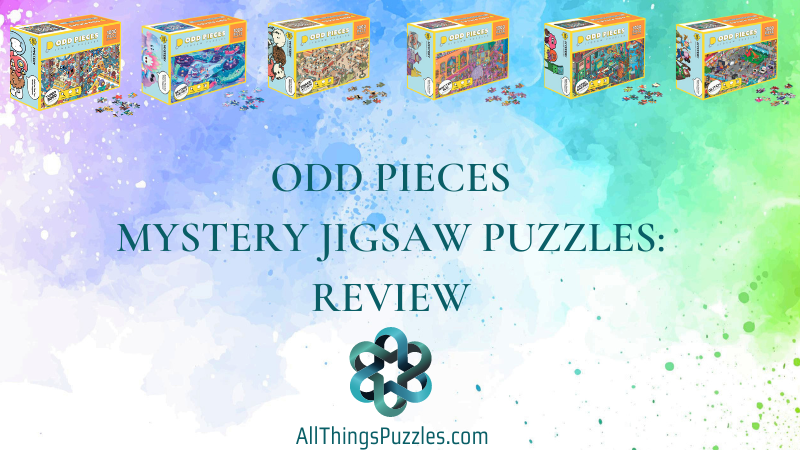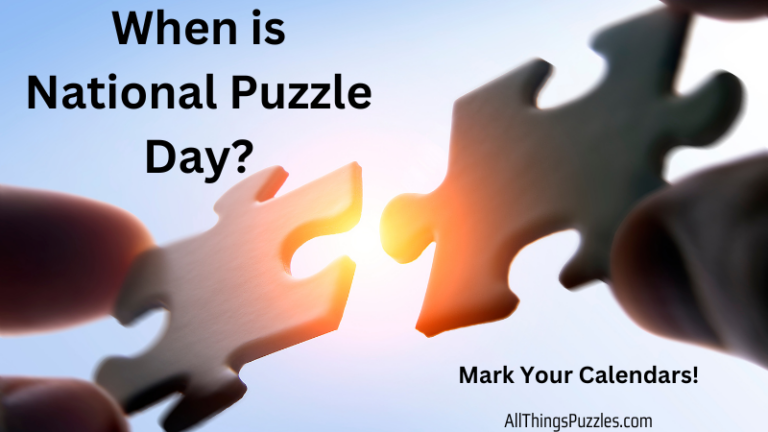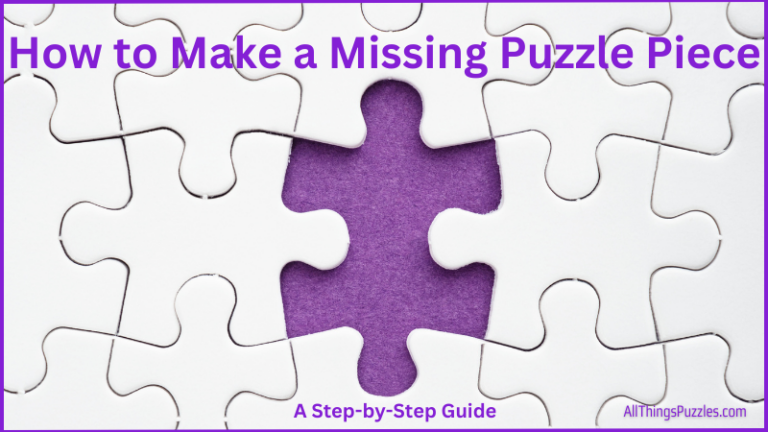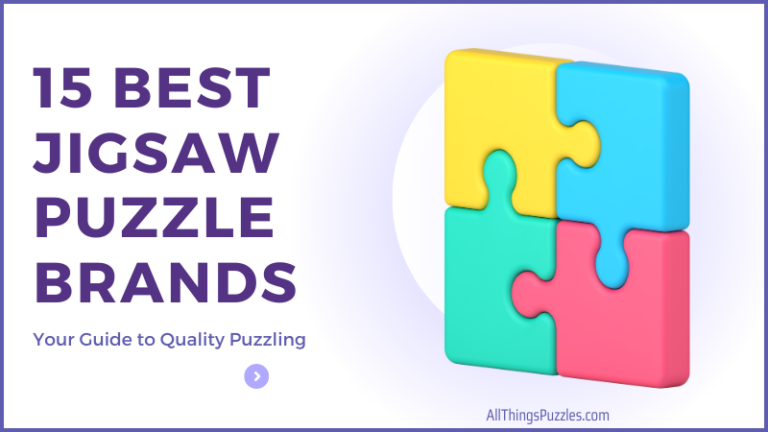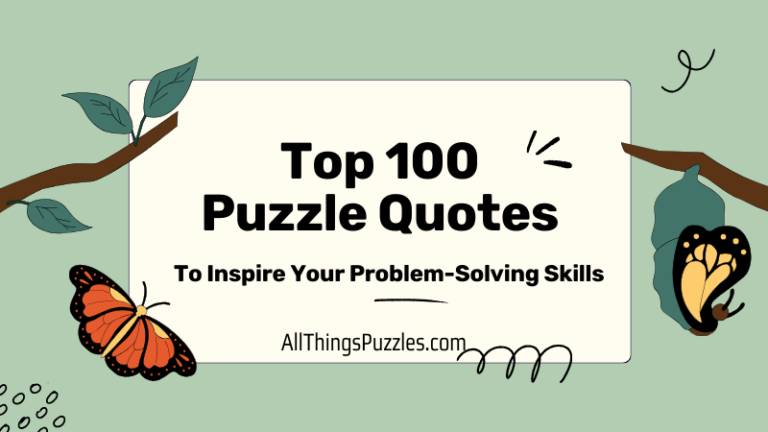As a puzzle enthusiast, I have always been fascinated by the intricate workings of the brain during puzzle-solving. Not only is puzzle-solving a fun and engaging activity, but it also has a multitude of benefits for the brain. In this article, we will delve into the science behind puzzle-solving, the benefits of doing puzzles, how puzzles help your brain, and how to incorporate them into your daily routine.
Key Takeaways:
- Puzzles are a holistic mental exercise that improve cognitive skills and maintain brain health.
- Regular puzzle-solving can slow cognitive decline and aid in keeping both sides of the brain engaged.
- Incorporating puzzles into daily life offers a fun and beneficial way to enhance problem-solving abilities and mental sharpness.
Video: Benefits of Doing Puzzles
The Science of Puzzle-Solving
Puzzle-solving is the process of finding a solution to a problem, challenge, or game. It involves the brain’s ability to process information, analyze patterns, and come up with solutions. When we engage in puzzle-solving activities, our brain’s neurons fire up, creating new neural connections and strengthening existing ones.
During puzzle-solving, our brain releases dopamine, a neurotransmitter that plays a crucial role in motivation, pleasure, and reward. Dopamine reinforces positive behaviors, which makes puzzle-solving a satisfying and rewarding activity.
Benefits of Puzzle Solving for the Brain
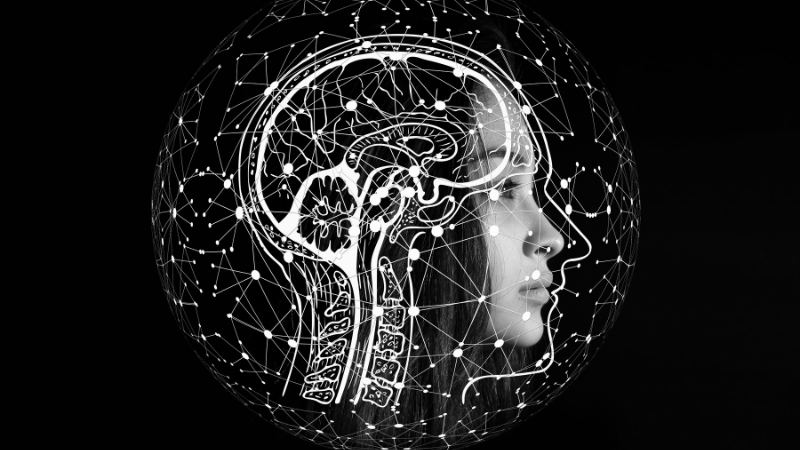
Engaging in puzzle activities is an excellent method for keeping your mind active and sharp. The act of fitting puzzle pieces together challenges your brain, enhancing your problem-solving skills and your ability to focus on small details. As you maneuver different pieces to find the right place, you engage various cognitive skills including short-term memory, visual-spatial reasoning, and hand-eye coordination.
When puzzles become a regular part of your life, they offer more than just a fun challenge; they are a complete brain exercise. They stimulate both sides of the brain, encouraging better communication between the hemispheres. Research from the University of Michigan highlights the cognitive benefits of puzzles, demonstrating their effectiveness in maintaining cognitive function and potentially delaying the cognitive decline associated with aging.
Puzzle Entertainment: Cognitive Advantages
- Mental Exercise: Regular puzzle solving contributes to mental speed and problem-solving abilities.
- Memory Enhancement: Engaging with puzzles aids in short-term memory improvement.
- Visual-Spatial Boost: Jigsaw puzzling helps develop your visual-spatial reasoning.
- Motor Skill Development: Assembling puzzle pieces enhances fine motor skills, especially in young children.
- Cognitive Health: Puzzles can delay cognitive decline and reduce symptoms of dementia in older adults.
- Stress Reduction: Achieving a near dreamlike state, puzzles may lower stress levels and heart rate.
- Dopamine Production: Completing a puzzle triggers brain production of dopamine, improving mood and cognitive function.
- Whole Brain Activity: Puzzles activate both sides of the brain, fostering complete brain exercise.
- Social Interaction: Puzzle collaboration with family members can enhance social skills.
| Age Group | Suggested Puzzle Type | Benefits |
|---|---|---|
| Toddlers | Simple wooden jigsaw | Cognitive development, hand-eye coordination |
| School-Age Kids | Crossword puzzles, number puzzles | Cognitive skills, attention span |
| Adults | Escape room challenges, larger image jigsaws | Critical thinking, problem-solving ability |
| Seniors | Memory puzzles, custom photo puzzles | Memory loss prevention, cognitive abilities maintenance |
- Positive Impact: Securing the last piece in place offers a sense of accomplishment.
- Diversified Approach: Different pieces and puzzles demand different approaches to solutions.
- Brain-Friendly Alternative: Puzzle games are an excellent alternative to screen time from video games and social media.
Puzzle-Solving Insights
Engaging in the art of puzzles taps into your brain’s logic center, inviting both halves to collaborate—uniting the analytical brain with the creative. This synergy is a complete brain exercise, enhancing problem-solving skills and boosting mental speed. As you piece together puzzles, your neurons are at work, forming and reinforcing neural connections.
Key Points:
- Dopamine: As you solve puzzles, your brain produces dopamine, leading to enhanced mood and motivation.
- Brain Health: Regular puzzle activity keeps the brain active and may assist in stalling cognitive decline.
- Cognitive Skills: Challenges like jigsaw puzzling sharpen short-term memory and fine motor skills.
For Different Ages:
- Young Children: Puzzle play fosters cognitive development and spatial awareness.
- Older Adults: Engaging in puzzles can help combat memory loss and maintain mental agility.
Puzzle-solving isn’t just a fun activity—it’s a robust tool for maintaining cognitive abilities and is beneficial for people of all ages. Every time you align puzzle pieces in the right place, your visual-spatial reasoning gets a workout. It’s a great way to keep your mind active and concentrate on the task at hand.
Brain Benefits from Puzzle Engagement
Do puzzles improve brain function: Yes, puzzle-solving has numerous benefits for the brain. Let’s take a look at some of them:
Enhancing Cognitive Abilities
When you match pieces of puzzles, your brain engages in a complete brain exercise that bolsters your cognitive skills, such as memory retention and problem-solving abilities. Your spatial awareness and visual-spatial reasoning are significantly enhanced through the process of determining the right place for each small piece, leading to complete the larger image.
Enhancing Focus and Concentration
Puzzle games require undivided attention to small details, which translates into better concentration in day-to-day tasks. As you search for different pieces that fit together, your attention span is trained to focus on the task at hand.
Enhancing Pattern Recognition and Logic
The challenge of unlocking patterns within a complex puzzle and applying logical thinking solidifies your critical thinking and problem-solving abilities. Each time you deduce where a piece fits, you build on your capacity for detailed analysis and reasoning.
Strengthening Neural Connections
Engaging with puzzle pieces encourages brain cell growth and fortifies neural connections. This neuroplasticity is vital for a healthy, adaptive mind and guards against cognitive decline, keeping both sides of your brain in active collaboration.
Strengthening Fine Motor Skills
Jigsaw puzzling and similar activities hone your fine motor skills and hand-eye coordination through the careful handling of small puzzle pieces and the trial and error of finding their placement, thus strengthening crucial motor abilities.
Delaying Age-Related Cognitive Decline
Engaging in puzzle-solving activities can help delay age-related cognitive decline. A study conducted by the University of Exeter found that adults who regularly engage in puzzle-solving activities have better cognitive function than those who don’t.
Boosting Creativity
Puzzling activates different approaches to problem-solving and fosters imagination by challenging you to think outside the box. This stimulates the brain’s alpha state, akin to a near dreamlike state, which is conducive to heightened creativity.
Improving Patience and Perseverance
Working through a puzzle cultivates patience and resilience. Each small victory, like fitting the last piece, fosters a greater sense of accomplishment, instilling important skills like determination and boosting your mood after a long day.
Promoting Social Interaction
Through social interaction, puzzle play becomes more than just a fun challenge; it’s an exercise in teamwork and the cultivation of social skills. Collaborating with family members on a puzzle can solidify bonds and enhance your social life off-screen.
Reducing Stress and Improving Mood
Regular engagement in puzzle games is a good way to manage stress levels. The mental state achieved in solving puzzles can lower your heart rate and blood pressure, providing quality stress relief and a better mood.
Providing a Relaxing and Mindful Escape
Puzzles offer an escape from the stress of daily life, allowing you to enjoy the present moment. They promote mindfulness and can shift the mind into a calm, relaxed state of flow, enhancing your mental health and overall quality of life.
Types of Puzzles and Their Specific Benefits
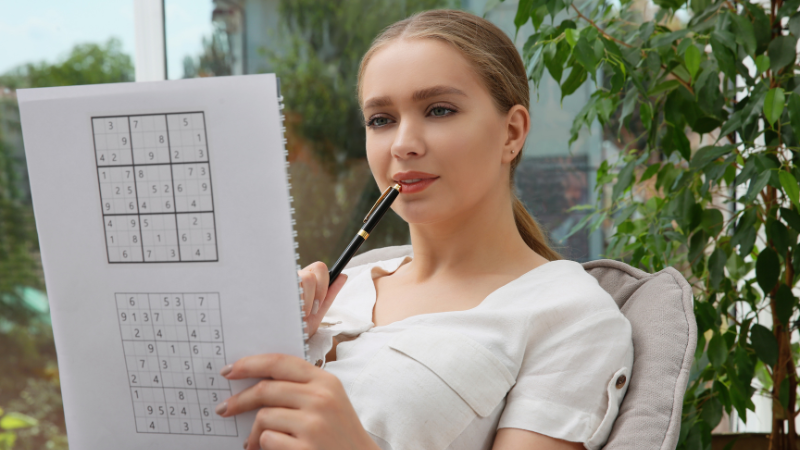
There are many types of puzzles, each with its own specific benefits. Let’s take a look at some of them:
Jigsaw Puzzles
An excellent way to exercise both hemispheres of your brain, interlocking picture puzzles, commonly known as jigsaw puzzles, enhance your visual-spatial reasoning. As you search for the right place for each small piece, you’re not only giving your eyes and hands a workout but also supporting your short-term memory. It’s a type of mental exercise that’s suitable for people of all ages, helping to keep both your mind and brain active.
Crossword Puzzles
Crossword puzzles, serve as a robust cognitive workout. Engaging in these regularly can sharpen your critical thinking and problem-solving abilities. They act as an all-inclusive brain exercise, improving your vocabulary and cognitive skills. Crossword puzzles are also recognized for their potential in delaying the onset of cognitive decline, making them beneficial for your mental health, especially for older adults.
Numerical Logic Games
Numerical logic games, like Sudoku, test your problem-solving skills and encourage you to use different approaches to reach a solution. They provide a fun challenge that boosts cognitive function and can improve attention span by requiring you to work through a series of number puzzles. Regularly exercising your brain with these puzzles may promote neural connections, important for warding off symptoms of dementia.
Brain Teasers
Brain teasers not only lead to a sense of accomplishment but also enhance your memory and reasoning skills. They’re a fantastic way to provide a complete brain workout, as they require you to focus on small details for generating new relationships between different pieces of information, thereby enhancing your cognitive abilities.
How to Incorporate Puzzle-Solving into Daily Life
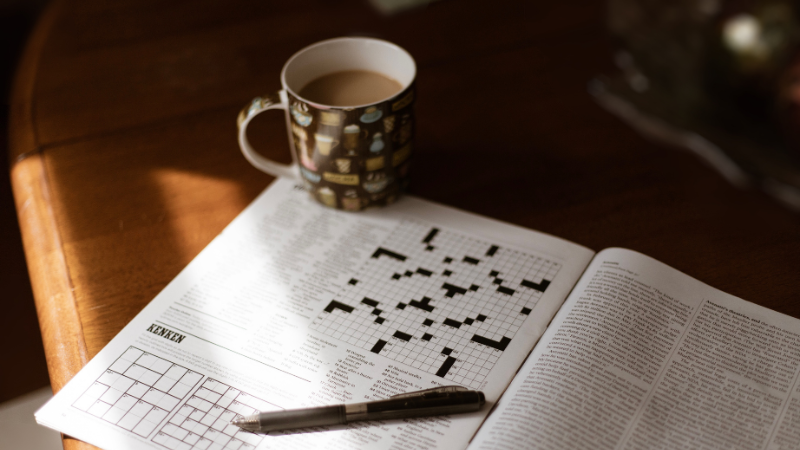
Enhancing Your Routine with Puzzle Engagement
- Education: Regular puzzle activities can improve your cognitive function. Even a short engagement can kick-start your brain cells and stave off cognitive decline.
- Self-care: Immerse yourself in an escape room or jigsaw puzzling to maintain brain health and lower stress levels.
- Hobby: Incorporating variety in your puzzles can challenge multiple cognitive skills, from problem-solving to spatial awareness.
- Meditation: Achieve an alpha state as you focus on puzzle pieces, facilitating a near dreamlike mental state.
- Activity: Share the fun with family, boosting everyone’s social skills and fostering stronger neural connections.
Tips for Successful Puzzle Integration:
- Dedicate a small part of your day to solving puzzles, keeping your mind sharp.
- Have a puzzle app or a book of Sudoku or crossword puzzles on hand for convenient access – a fun way to use screen time wisely.
- Begin with puzzles matching your skill level; success boosts confidence and ensures a sense of accomplishment.
- Switch between different types of puzzles to exercise both sides of your brain, enhancing overall mental flexibility.
FAQs
Are there any particular types of puzzles that are better for improving cognitive abilities?
No, any type of puzzle can be beneficial for improving cognitive abilities. The key is to choose puzzles that challenge you and require you to think critically and problem-solve.
What age group is puzzle-solving suitable for?

Puzzle-solving is suitable for people of all ages. Children can start with simpler puzzles and work their way up to more challenging ones as they develop their problem-solving skills. Adults can also benefit from puzzle-solving, as it can help improve memory and cognitive abilities.
Can puzzle-solving help with stress and anxiety?

Yes, puzzle-solving can be a great way to reduce stress and anxiety. When you focus on solving a puzzle, you’re able to take your mind off of other stressors in your life and give your brain a break. Additionally, the sense of accomplishment and satisfaction that comes with solving a puzzle can be a mood booster.
Closing
Puzzles are a sterling method for enhancing your brain’s functionality. When you align puzzle pieces correctly, you not only bolster your short-term memory but also improve your fine motor skills. Regular interaction with puzzles offers a myriad of cognitive benefits. They are known to postpone the onset of cognitive decline, improve visual-spatial reasoning, and even increase mental speed.
The benefits are not limited to one age group; people of all ages find puzzling to be a complete brain exercise. It’s more than leisure; when you engage in a fun puzzle, you’re tapping into different sides of your brain, which may help mitigate the risks associated with ailments like Alzheimer’s disease. Puzzles like crosswords contribute significantly to cognitive function, while jigsaws may induce an alpha state, akin to the calmness just before sleep, which can lower your heart rate and blood pressure.
Your mental health rejoices when you find the right place for different pieces; it’s a fun challenge that makes you feel satisfied. So, why not replace some screen time with a mental workout next time you need a break? Whether it’s young children honing their spatial awareness, older adults aiming to keep their minds active, or any puzzle enthusiast seeking a sense of accomplishment, puzzle games are a good way to keep the brain active. Picking up a puzzle could just be the mental exercise you need after a long day.
For me, I find working on puzzles to be a great way to relax. What benefits you have found in doing puzzles? Please comment below.
